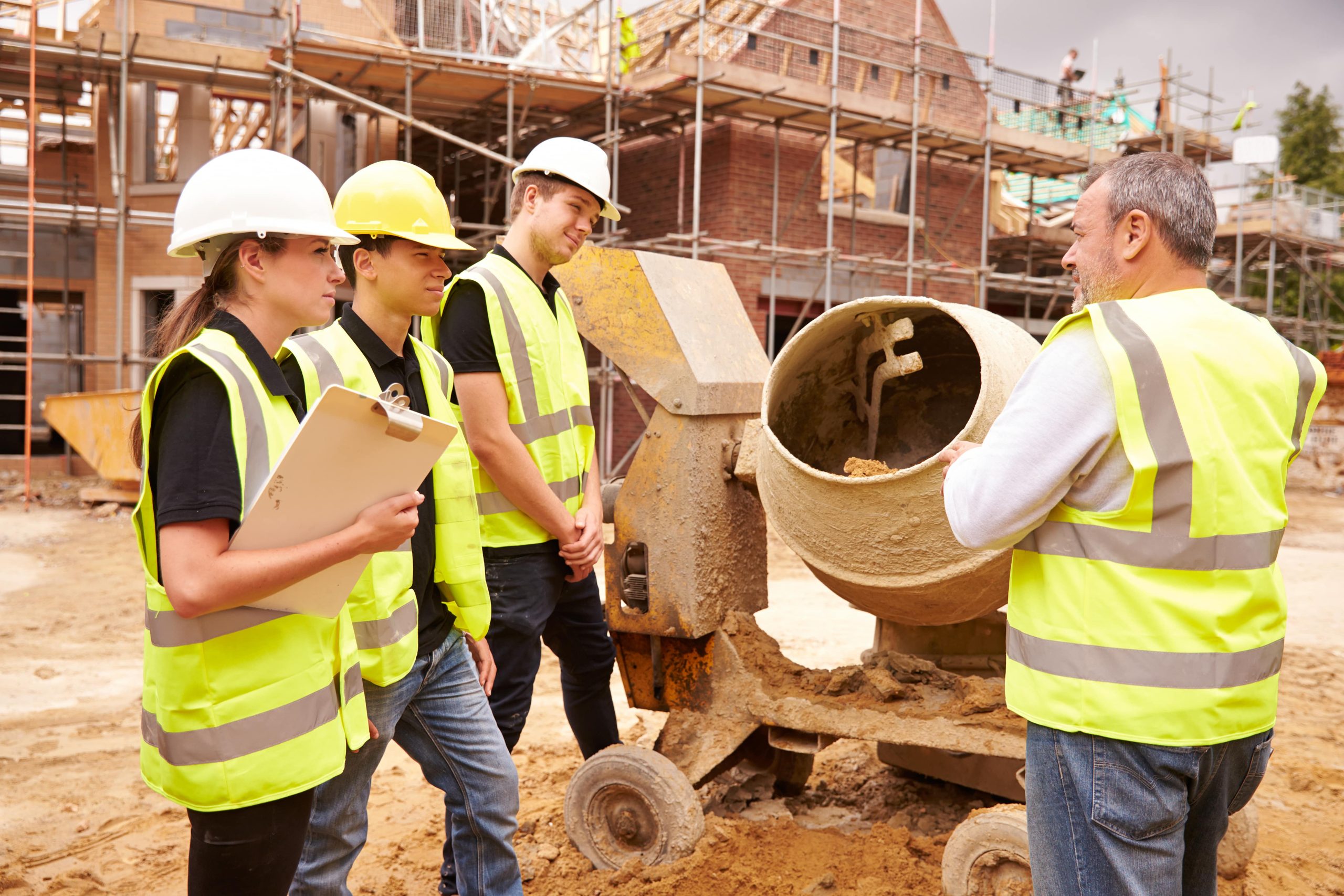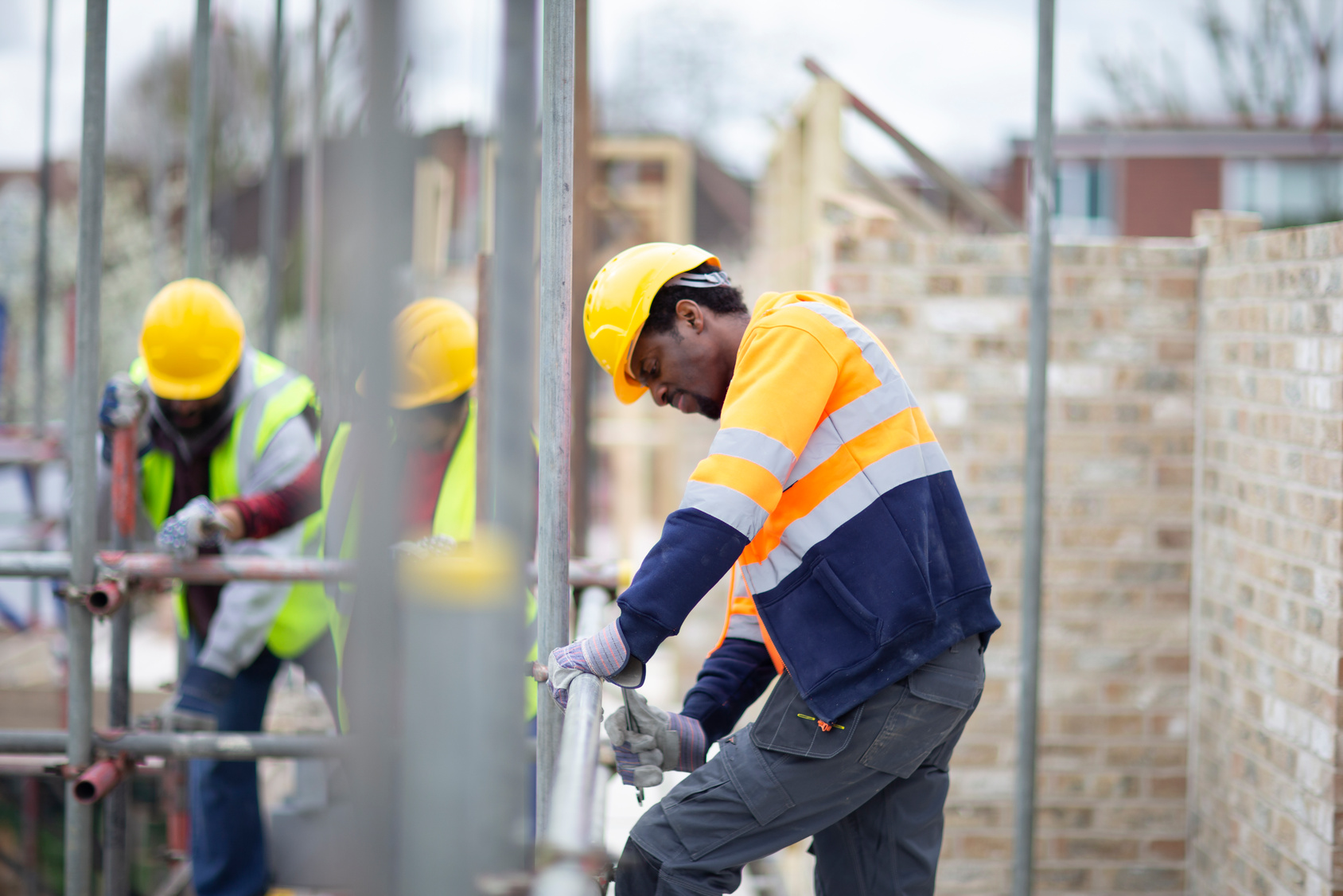Construction is an industry that involves building, repairing, and maintaining structures such as buildings, roads, bridges, and other infrastructure. It is a vital business that offers many work possibilities to those with a wide range of talents and experience levels. Skinner, a Dallas-Fort Worth & surrounding areas in Texas construction staffing agency, is known to provide talented construction individuals.
1. Laborer
As a laborer, you will be responsible for several jobs on a building site, such as digging trenches, hauling goods, and cleaning up waste.
2. Carpenter’s Apprentice
A carpenter’s apprentice learns the profession by completing duties such as measuring and cutting wood, erecting structures, and installing fixtures while working under the guidance of a skilled carpenter. This position typically needs a high school certificate or equivalent and basic arithmetic and carpentry skills.
3. Concrete Finisher
A concrete finisher is responsible for pouring and finishing concrete, including sidewalks, driveways, and foundations. This profession involves physical endurance and knowledge of tools and equipment, but no previous experience is usually required.
4. Painter
A construction painter adds paint, varnish, and other finishes to buildings and structures. This profession needs attention to detail and an understanding of various painting methods but does not generally require previous experience.
5. Electrician’s Assistant
Aids in installing and maintaining electrical equipment, such as wiring and lights. This work often does not need previous experience and just requires a basic understanding of electrical systems and some physical strength.
6. Mason’s Helper
A Mason’s helper is a construction worker who helps bricklayers and masons by preparing and arranging materials and supplies required for constructing walls and other constructions. On construction sites, they mix mortar, move bricks and blocks, assemble scaffolding, and clean up. Mason helpers are essential construction team members because they guarantee that the bricklayers and masons get the supplies and materials, they need to accomplish their tasks quickly and successfully.
Why Should You Consider Construction as a Career?
Here are some reasons to consider why you might choose a career in construction:
1. Job Security
The construction industry is a stable industry that is always in demand. As long as people need buildings and infrastructure, there will be a need for construction workers. Unlike other industries that may experience fluctuations due to economic changes, construction jobs are more secure and provide stable employment.
2. Job Options
The construction business provides career opportunities that appeal to various skill sets and interests. There is a career in construction for you, whether you like working with your hands or utilizing your technical talents. Carpenters, electricians, plumbers, welders, architects, engineers, and project managers are all examples of construction workers.
3. Good Pay
Construction jobs often pay well and provide nice perks.
4. Room for Growth
The construction sector provides several prospects for development and success. Workers at the entry-level may gain new skills and move to higher-paying professions over time. Also, there is always a demand for qualified employees in the construction business, so you may progress your career and make more money.
Typical starting salary for entry-level construction employment
Regarding entry-level construction work, one of the most common questions is, how much do they get paid? The answer to this entry-level salary question depends on various circumstances, including the kind of your employment, your location, and your degree of expertise.
It should be noted that pay rates might vary significantly based on a variety of circumstances. For example, if you reside in a high-cost location, you may be able to make more money than someone working in a lower-cost area. Additionally, if you have specialized skills or certifications, you may be able to earn more money than someone without those qualifications.
Difficulties you may encounter in an entry-level construction job
Physical work is one of the most challenging tasks in an entry-level construction job. Construction work may be physically demanding, requiring you to move extensive materials or stand for lengthy periods. Moreover, working on a construction site may be hazardous if you’re not cautious, so it’s critical to be aware of and adhere to safety standards.
It’s a good idea to keep in the excellent physical condition and know your limitations to prepare for these obstacles. You should also learn about safety protocols and make sure you have the required protective equipment to keep yourself safe at work. You may overcome these obstacles and succeed in your entry-level construction career with the correct preparation.
Are there any apprenticeships or training programs available in the building industry?
Absolutely, there are several apprenticeship and training programs available in the construction sector. These programs are intended to assist entry-level employees in acquiring the skills and information required to thrive.
Apprenticeships often span many years and include on-the-job training and classroom teaching. They may also result in certification or licensure in a particular trade. Several construction businesses have their training programs, and many industry groups and trade unions also provide training. If you want to work in construction, it’s worth looking into these programs to see whether they suit you.
Tips on how to secure an entry-level construction job?
If you want to guarantee an entry-level construction job, there are various actions you may take to improve your chances. Check out these four helpful tips to get you started:
1. Research job opportunities.
Begin by researching construction businesses in your region and visiting their websites or job boards for entry-level work. You may also browse for job advertisements on general job boards or internet search engines.
2. Build a strong resume.
Even if you don’t have direct construction experience, you may emphasize essential abilities like attention to detail, physical strength, and a desire to learn on your resume. Make a point of emphasizing any construction-related experience, such as gardening or physical work.
3. Consider an apprenticeship or training program.
Several construction businesses provide apprenticeships or training programs for new employees. These programs may assist you in gaining essential skills and experience that can lead to employment in the sector.
4. Prepare for the interview.
If you are invited to an interview, dress appropriately, attend on time, and be prepared to answer questions about your talents and expertise. Ask questions about the position and the firm to demonstrate your interest and passion.















